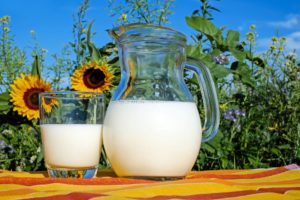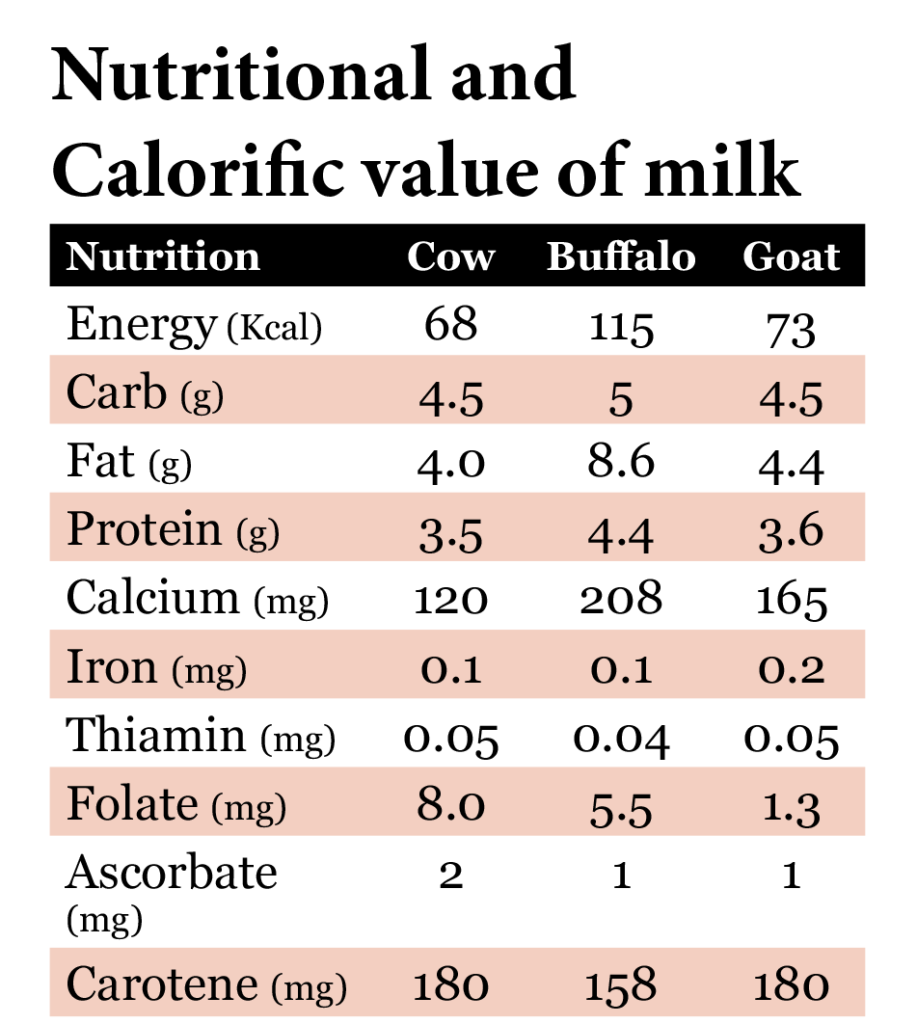In a bid to help dairy farmers, the agriculture ministry recently wrote to all states to include milk in the mid-day meal (MDM) scheme, asked the department of food and public distribution to consider inclusion of milk in the PDS system and also prodded the ministry of women and child development to include milk in the National Nutrition Mission through the Anganwadis.
 While the move for the agriculture ministry is nothing more than a commercial push, the high nutritional value of milk makes it an ideal food for children – a tad less so for adults. Children who are growing have a high energy requirement – energy allowance for a nine-year-old child may exceed that of a sedentary adult woman (1900 Kcal) by 100 Kcal.
While the move for the agriculture ministry is nothing more than a commercial push, the high nutritional value of milk makes it an ideal food for children – a tad less so for adults. Children who are growing have a high energy requirement – energy allowance for a nine-year-old child may exceed that of a sedentary adult woman (1900 Kcal) by 100 Kcal.
The Mayo Clinic guidelines for a healthy diet for children reads: “Encourage your child to eat and drink fat-free or low-fat dairy products, such as milk, yogurt, cheese or fortified soy beverages.” United Kingdom’s National Health Services recommends: “They (milk and dairy products) are a good source of energy and protein, and contain a wide range of vitamins and minerals, including calcium, which growing children and young people need to build healthy bones and teeth.”
 But, NHS also warns: “However, much of the fat in milk and dairy foods is saturated fat. For older children and adults, eating too much fat can contribute to excess energy intakes, leading to becoming overweight. A diet high in saturated fat can also lead to raised levels of cholesterol in the blood, and this can put you at increased risk of a heart attack or stroke.”
But, NHS also warns: “However, much of the fat in milk and dairy foods is saturated fat. For older children and adults, eating too much fat can contribute to excess energy intakes, leading to becoming overweight. A diet high in saturated fat can also lead to raised levels of cholesterol in the blood, and this can put you at increased risk of a heart attack or stroke.”
While the calorific and nutritional value of milk varies according to its source (see table) milk supplies an infant with adequate amounts of proteins, fats, lactose, calcium, phosphorus, vitamin A and some other B vitamins. It is a complete food for a baby. However as the child grows, milk needs to be supplemented with other foods. For example the iron content of milk is low and a person brought up exclusively on a milk diet would inevitably suffer from anemia or low levels of blood hemoglobin.

Nutritional and Calorific value of milkMilk is a rich source of easily digestible fat with only 30% if the fatty acids being unsaturated. Milk is also rich in riboflavin (vit B2) and vitamin A. But milk is poor in vitamins C (important for repair and regeneration of tissue), Vitamin D (important for bone health) and vitamin K (important for the ability of blood to clot.


